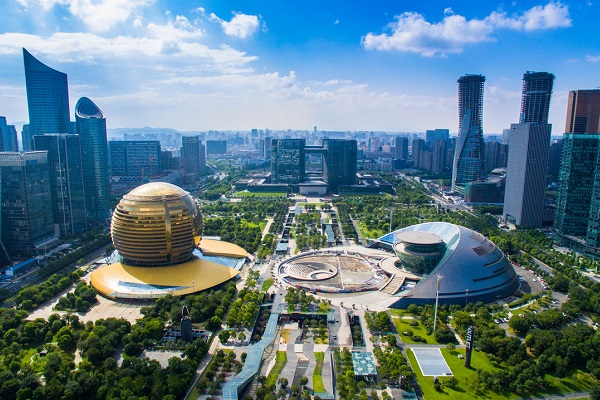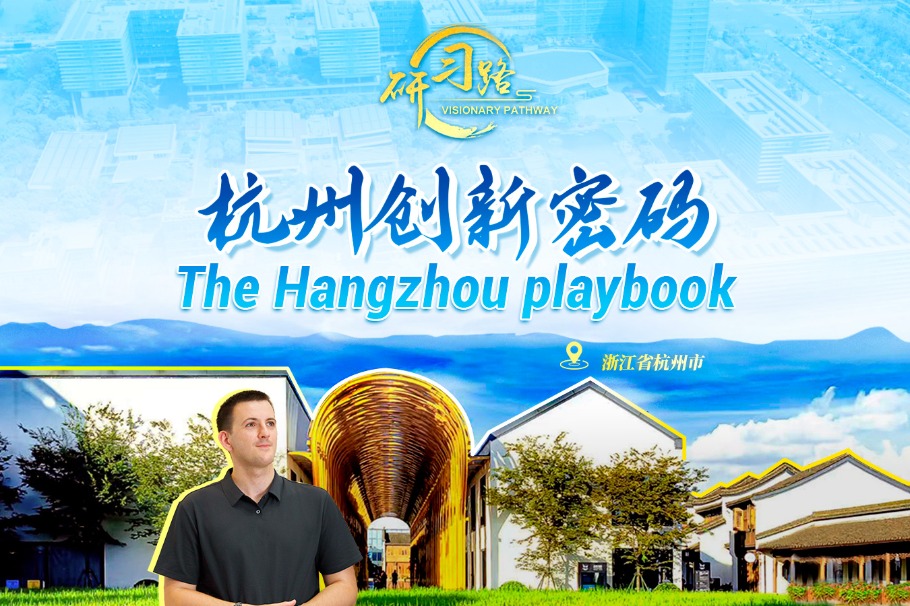Digital technology key to Hangzhou's rural revitalization
Hangzhou in East China's Zhejiang province unveiled the municipal rural revitalization bureau on Aug 10.
The bureau was set up in response to the central government's strategy of rejuvenating the country through science and education and innovation-driven development.
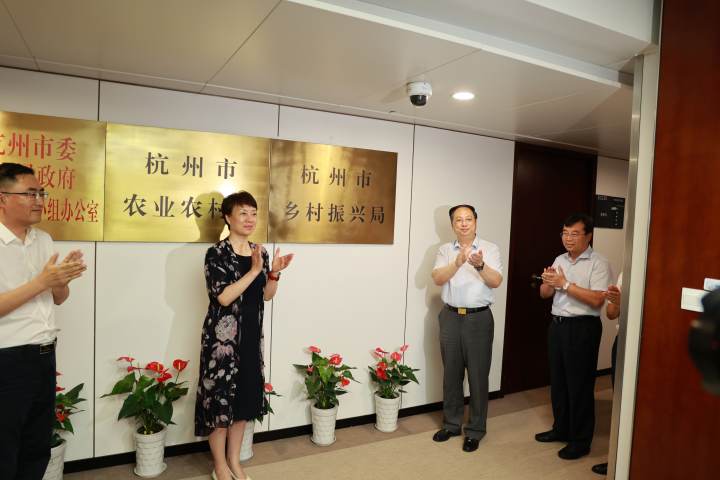
The bureau's opening ceremony is held in Hangzhou on Aug 10. [Photo/zjol.com.cn]
In the first half of 2021, the per capita disposable income of Hangzhou's rural residents was 22,631 yuan ($3,489.7), a 15.2 percent year-on-year increase.
To date, all 1,922 villages in Hangzhou are on the path to modernization, with improvements to the sewage disposal, garbage recycling, and government-assisted digital technologies being made.
Solar-powered pest-killing lights are installed every 20 mu (1.33 hectares) in the tea gardens. The lights are connected to the internet and can be remotely controlled by farmers.
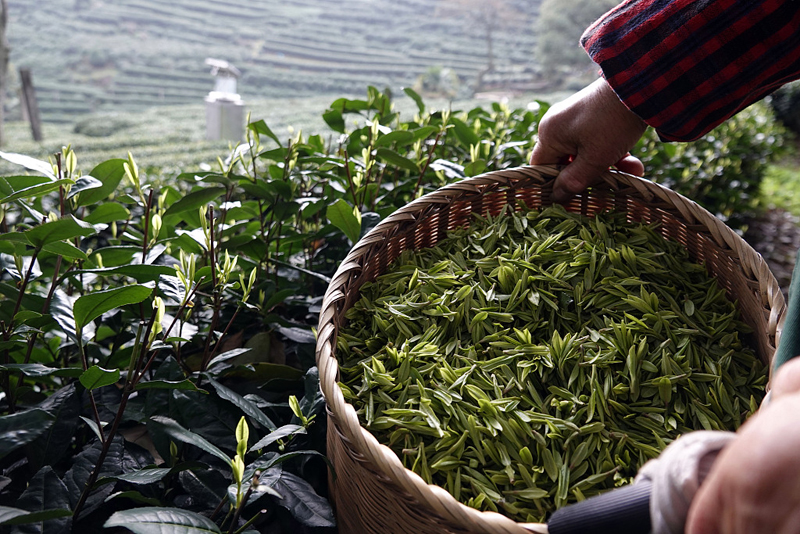
A farmer shows newly harvested Longjing tea leaves at Meijiawu village, Xihu district. [Photo/CFP]
"Pests are the worst thing in the spring and summer. Years ago, there was a summer when I left my garden untended for a week. Pests ate my leaves and affected that year's yield," said Huang Lihua, a farmer who owns a tea garden spanning 3 mu.
Statistics from the Hangzhou agriculture department show that digitalized brand management has lifted the revenues of Longjing tea leaves by almost 50 percent to 474 million yuan, with the price per kilogram rising from 619 yuan to 960 yuan.
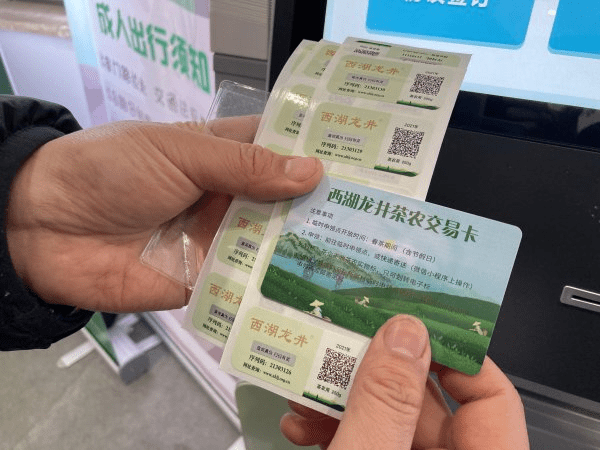
A digitalized brand management system uses QR codes and IC cards to track tea sources and eliminate frauds in the market. [Photo/zjol.com.cn]
The department said that there are currently 21,600 mu of Longjing tea gardens, with the total annual yield amounting to about 500 tons. However, there are many counterfeit products exploiting the Longjing tea brand.
A digitalized brand management system was launched in 2020. Only tea companies certified by local agricultural authorities were allowed to purchase tea from these farmers. Once a deal has been confirmed, the corresponding amount of tea would be deducted from the farmer's account.
Every year, the department puts together a task force to gather statistics that will be double-checked against tea companies' sales. The local market supervision bureau will also step in should anything abnormal appear, according to the department.
-
Visionary Pathway - Hangzhou Playbook
July 15, 2025


